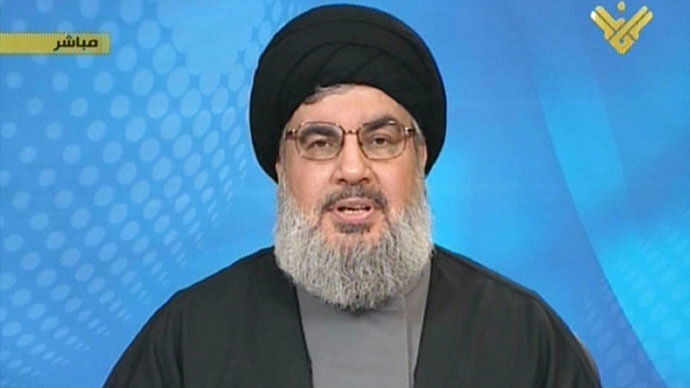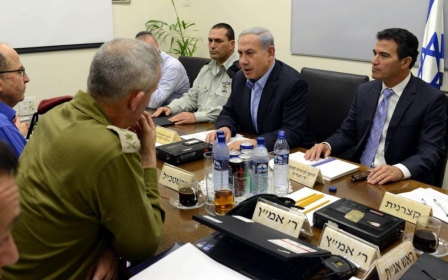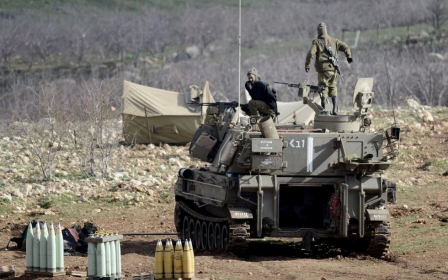Hezbollah leader says group 'does not want a war' with Israel

The leader of a Lebanese militant group said in a televised speech on Friday that he is not seeking a war with Israel, but is prepared to launch one if necessary.
Hassan Nasrallah, who heads the Lebanese Shiite group Hezbollah, gave an extended speech broadcast live from the capital Beirut, two days after an attack by Hezbollah killed two Israeli soldiers in the Israeli-occupied Shebaa Farms. A Spanish peacekeeper was later killed in the cross-border exchange, with Spain blaming Israel for his death.
According to Nasrallah, the attack on the Israeli convoy, which he said was launched in “broad daylight,” was a “retaliation” for an Israeli strike on 18 January that killed an Iranian Revolutionary Guardsman and six Hezbollah fighters, including the son of Imad Mughniyeh, a late Hezbollah leader.
Nasrallah also condemned the Israeli strike as a premeditated assassination, saying Hezbollah was within their rights to strike back.
“We are no longer concerned with the rules of engagement,” Nasrallah said, explaining that Hezbollah, which is fighting alongside President Bashar al-Assad’s forces in Syria’s protracted civil war, will hold Israel responsible for the assassination of their fighters.
Despite the tit-for-tat attacks and escalating rhetoric from both sides, analysts say that neither Hezbollah nor Israel are eager to rush into full-blown conflict.
“We’ve just been in this situation in Gaza in the summer, and I don’t think the Israeli army wants [a fight] with Hezbollah,” said Yossi Meckelberg, an associate with Chatham House.
“Hezbollah has its own pressures in Lebanon not to do this.”
Despite his strong words for Israel, which he accused of “corruption and arrogance,” Nasrallah stressed on Friday that this week’s attack was “less than a war”. The two groups fought a bloody 34-day war in 2006.
He also rejected suggestions that the recent skirmishes were connected with the nuclear negotiations that are ongoing between Iran and the P5+1 (a coalition of countries made up of the US, China, France, Germany and Russia).
Iran, a long-time backer of Hezbollah, has been stifled by sanctions imposed over its nuclear programme, which the West and its regional allies fear it is using to build nuclear weapons.
Talks aimed at easing the sanctions are fragile, and an outbreak of violence between Israel and Hezbollah would likely set back any progress towards a deal.
On Friday, Nasrallah stressed that the attacks had “nothing to do with the nuclear talks. This is to do with Lebanon, and Iran respects that.”
New MEE newsletter: Jerusalem Dispatch
Sign up to get the latest insights and analysis on Israel-Palestine, alongside Turkey Unpacked and other MEE newsletters
Middle East Eye delivers independent and unrivalled coverage and analysis of the Middle East, North Africa and beyond. To learn more about republishing this content and the associated fees, please fill out this form. More about MEE can be found here.




